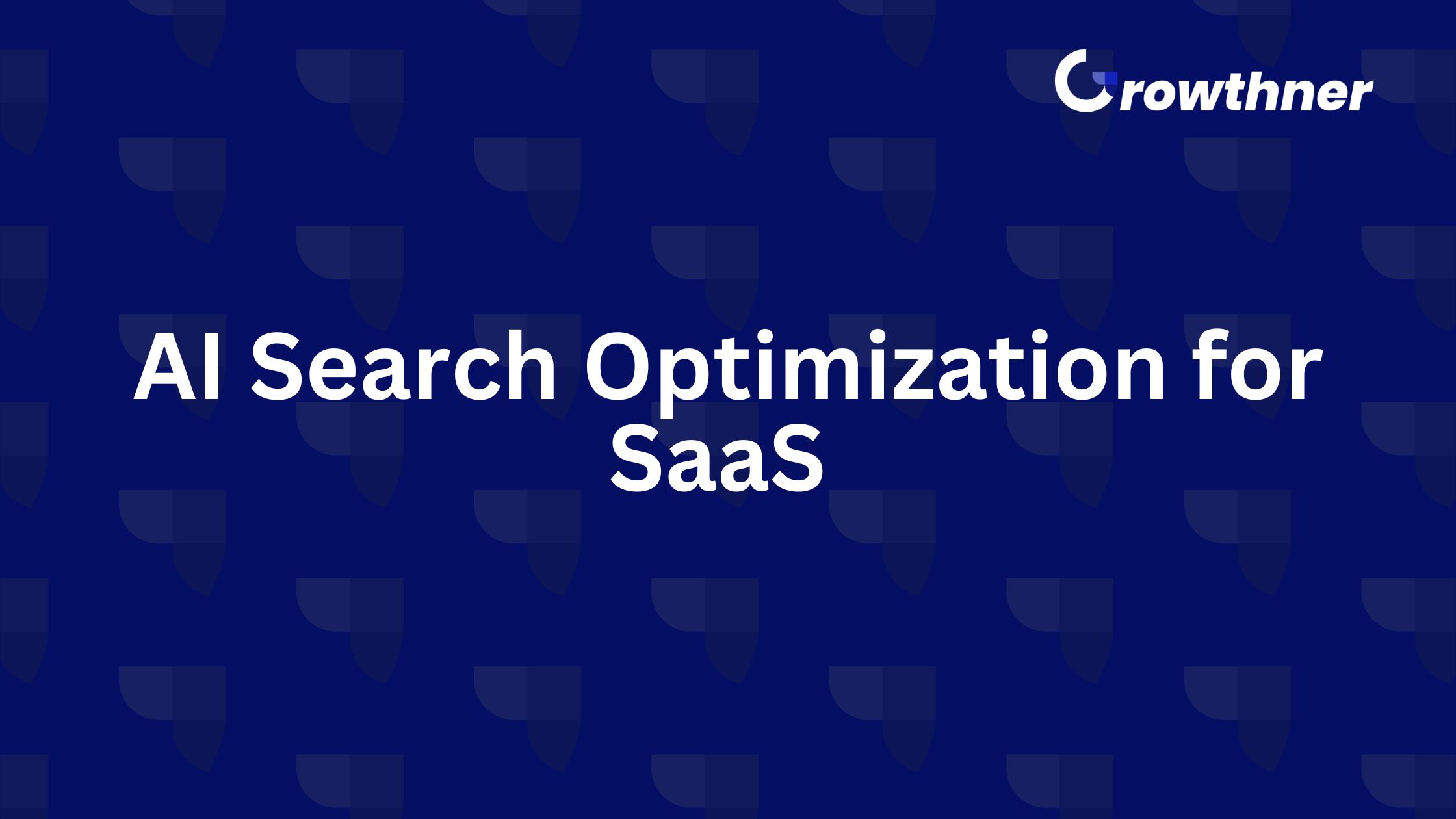Get a Free SEO
Growth Plan
Actionable insights tailored for your business
Apply now
Published by: Amit Kakkar
Published on: August 4, 2025
Last updated on: January 22, 2026
Last Updated on January 22, 2026 by admin
If you’re only optimizing your SaaS site for Google, you are already behind.
AI search optimization might be taking Google clicks from you. But if you optimize your website the right way for AI search engines, then you might be unlocking a gold mine. SaaS brands have witnessed a surge of 20% to 50% in organic traffic and a 30% boost in conversion rates.
Today’s buyers are asking ChatGPT, Perplexity, and Claude for software suggestions and getting instant answers. That’s where AI search engine optimization for SaaS comes in.
It’s no longer just about rankings. It’s about being the source that AI tools cite.
This guide breaks down exactly how SaaS brands can show up in AI-generated responses and why this could soon be more powerful than a page-one Google result.
The way people discover software is changing fast. Instead of searching “best marketing automation tools” on Google, they’re asking AI chatbots:
“What’s the best email tool for an early-stage B2B SaaS?”
And they’re getting answers with tool names, pros, cons, and links.
Platforms like ChatGPT, Perplexity, and Google’s SGE are reshaping how top-of-funnel (TOFU) discovery works. In fact, early studies show nearly 50% of Gen Z users now prefer AI chat for product research.
That shift means your SEO strategy can’t just chase keywords. You need to build content that AI trusts enough to quote.
Let’s be blunt: A mention in an AI answer box can beat a #3 SERP spot, especially when the AI is summarizing dozens of blog posts and choosing just 2-3 tools to highlight.
Imagine your competitor gets mentioned in ChatGPT’s reply, but you don’t, even though you rank higher on Google. That’s what’s at stake here.
Traditional search engines crawl, index, and rank based on signals like backlinks, content depth, and technical health.
LLMs (large language models), on the other hand, don’t return links. They generate answers using information they’ve been trained on or fine-tuned on and sometimes use tools like Bing or Brave Search for real-time context.
They prioritize :
To show up in AI responses, your site needs :
In short, AI agents look for the same things your buyers do: clarity, context, and trust.
If ChatGPT can’t find much about your brand across third-party platforms, it won’t mention you.
You need :
Prompt to test yourself :
“If someone asked ChatGPT about your product category, would your brand be mentioned? Why or why not?”
LLMs rely on context. That means keyword-stuffed content won’t cut it. Instead, focus on :
SaaS SEO isn’t about volume anymore. It’s about meaning.
Yes, even for AI optimization.
Make sure your site is :
AI engines look for high-signal, skimmable content.
That means :
A good rule of thumb: If it answers a question a user would type into ChatGPT, it’s worth creating.
Go beyond your site :
Pro tip : Use advanced search like site:reddit.com your tool to find where you’re already mentioned and where you’re missing.
Try this monthly ritual :
Think of it like tracking your SERP position but for AI responses.
You may be ranking, but not cited in answers. That’s a visibility gap.
AI prefers content that’s easy to parse. Use FAQ blocks, glossaries, schema, and definition tables.
A blog post here and there won’t cut it. Build consistent content clusters around your category.
If you’re only mentioned on your own site, AI won’t trust you. Get citations across domains.
Not entirely. But for top-of-funnel searches, “best tools for X,” “what’s the difference between…”, AI answers are already dominating.
Your users will increasingly discover tools via LLMs before ever clicking Google links.
Think of AI search as the new PR meets SEO.
AI search engine optimization for SaaS isn’t a trend it’s a shift.
LLMs are curating the software stack your buyers see. If you’re not visible in that conversation, you’re invisible.
Winning means thinking beyond links and keywords. It’s about becoming the trusted answer source. And in the AI era, that’s the new #1 ranking.
If you’re serious about showing up in ChatGPT, Perplexity, and other AI engines, Growthner can help.
We’ve helped SaaS companies build LLM-friendly content, fix technical gaps, and earn citations that drive real visibility.
Let’s turn your SEO into AI visibility.
Book a Free Strategy Call with Growthner today.
It’s the practice of optimizing your SaaS brand to get cited or recommended in AI-generated answers from tools like ChatGPT, Perplexity, and Google SGE.
Focus on building brand visibility, topical authority, structured content, and third-party mentions. AI agents cite sources they trust and understand.
Content that’s clear, contextual, and structured, like glossaries, tool comparisons, use-case guides, and FAQ pages.
It’s tricky but doable. You can track mentions in AI outputs using prompts, brand monitoring tools, and Perplexity’s citations view.
Yes, but they’re not enough. AI optimization requires a blend of SEO, PR, and content modeling with a focus on semantic clarity.
Amit Kakkar